The Top 10 films directed by Clint Eastwood
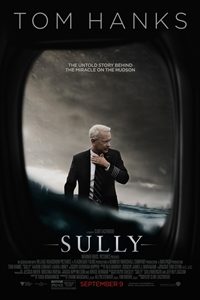 Hollywood legend Clint Eastwood’s 35th directorial effort, “Sully” (3/4 stars), arrives in theatres on Friday, Sept. 9 with Tom Hanks in the title role. The film chronicles U.S. Airways pilot Chesley ‘Sully’ Sullenberger’s heroic landing on the Hudson River in January 2009. With another solid Eastwood film in theatres, this seems like a perfect time reflect upon his work. Although I would love to compile a Top 20, 17 or 15 list, my pragmatic nature and movie critic tendencies “require” me to somehow limit the number of movies to 10, so here are my Top 10 films directed by Clint Eastwood.
Hollywood legend Clint Eastwood’s 35th directorial effort, “Sully” (3/4 stars), arrives in theatres on Friday, Sept. 9 with Tom Hanks in the title role. The film chronicles U.S. Airways pilot Chesley ‘Sully’ Sullenberger’s heroic landing on the Hudson River in January 2009. With another solid Eastwood film in theatres, this seems like a perfect time reflect upon his work. Although I would love to compile a Top 20, 17 or 15 list, my pragmatic nature and movie critic tendencies “require” me to somehow limit the number of movies to 10, so here are my Top 10 films directed by Clint Eastwood.
- “White Hunter Black Heart” (1990) – In one of Eastwood’s most engaging performances, he plays director John Huston on the somewhat-troubled set of “The African Queen” (1951). The trouble is solely caused by Huston (named John Wilson in the film), as he is more focused on finding and shooting an elephant than shooting his own picture (named “The African Trader” in the film). The audience is treated to an insider’s look of the movie business, scenic moments of Zimbabwe and Eastwood’s portrayal of Huston/Wilson as a man of character and Hemingway-like principles. The narrative offers a lighter ride on a faraway journey, but Eastwood includes some surprising and moving gravitas when we least expect it.
- “Bird” (1988) – Forest Whitaker delivers a Herculean performance as jazz saxophonist Charlie ‘Bird’ Parker. Fans bought Parker’s records and watched his concerts in droves, but he was plagued by money problems, alcoholism and heroin. Eastwood and Whitaker capture both sides of Parker’s “life-coin” with a healthy runtime of 2 hours 41 minutes, as the movie takes an organic approach. Succinct timelines and milestones are not explicitly presented, and instead, Eastwood offers a holistic view of Parker’s adult life through several gigs in smoky clubs, constant travel between Chicago and New York, squabbles with his wife (Diane Venora), and the repercussions of his addictions. About halfway through this engrossing biopic, I was nearly convinced that Whitaker actually was Charlie Parker.
- “The Outlaw Josey Wales” (1976) – Josey Wales (Eastwood) loses everything during the Civil War, when
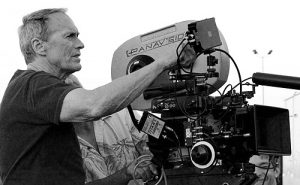 some Union fighters burn his house and kill his wife and son. With nothing to live for, he joins a group of Confederates, and soon after, he finds himself on his own and an outlaw. In a film that truly showcases everything about the American Western, Wales covers a winding story from Missouri to Texas and partners with – at various times – a teenager, two Native Americans and a family from Kansas. Eastwood mixes good fun with plenty of gunfights, as Wales offers a barrel full of memorable lines, countless visuals of his chewing tobacco spit, dead bodies in his wake, and - possibly - a reason to live.
some Union fighters burn his house and kill his wife and son. With nothing to live for, he joins a group of Confederates, and soon after, he finds himself on his own and an outlaw. In a film that truly showcases everything about the American Western, Wales covers a winding story from Missouri to Texas and partners with – at various times – a teenager, two Native Americans and a family from Kansas. Eastwood mixes good fun with plenty of gunfights, as Wales offers a barrel full of memorable lines, countless visuals of his chewing tobacco spit, dead bodies in his wake, and - possibly - a reason to live.
- “Letters from Iwo Jima” (2006) – In 1944, the U.S. compromised Japan’s air defenses and naval fleet, and Japanese military commanders sent platoons of soldiers to defend the island of Iwo Jima, considered a launching pad to the mainland. Iwo Jima is a place with no water and limited living conditions, and many men suffered from hunger, dysentery and homesickness. Eastwood tells their personal stories with a focus on General Kuribayashi (Ken Watanabe) and a young private named Saigo (Kazunari Ninomiya). Set in muted visual tones, this downcast tale depicts a group of men without much hope during a war going very badly. Since the film is told from a Japanese viewpoint, it places human faces and feelings on a group of men who were thought of as vicious U.S. enemies just over 80 years ago.
- “A Perfect World” (1993) – Back in 1993, Kevin Costner did not usually play a bad guy, but in “A Perfect World”, he is an escaped
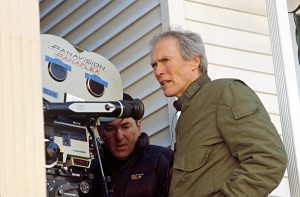 convict from a Huntsville, Texas prison. On the morning after Halloween in 1963, Butch (Costner) and another con kidnap an 8-year-old boy named Phillip (T.J. Lowther). After Butch dumps his partner, the two drive across the state with Texas Ranger Red Garnett (Eastwood) on their tail. The movie volleys between Red and Butch, and it soon concocts a semi-case of Stockholm syndrome for Phillip and the audience. Butch treats Phillip with esteem and kindness, so Costner does not wind up playing a complete bad guy, but Red is an empathetic figure as well. With an occasional protagonist and a fulltime protagonist on opposite sides of the law, “A Perfect World” reminds us that we do not live in one.
convict from a Huntsville, Texas prison. On the morning after Halloween in 1963, Butch (Costner) and another con kidnap an 8-year-old boy named Phillip (T.J. Lowther). After Butch dumps his partner, the two drive across the state with Texas Ranger Red Garnett (Eastwood) on their tail. The movie volleys between Red and Butch, and it soon concocts a semi-case of Stockholm syndrome for Phillip and the audience. Butch treats Phillip with esteem and kindness, so Costner does not wind up playing a complete bad guy, but Red is an empathetic figure as well. With an occasional protagonist and a fulltime protagonist on opposite sides of the law, “A Perfect World” reminds us that we do not live in one.
- “Play Misty for Me” (1971) – Sixteen years before Glenn Close terrified men everywhere in 1987’s “Fatal Attraction”, Jessica Walter was nominated for a Golden Globe by causing nightmares for – probably - the same number of guys in Eastwood’s directorial debut. In the coastal city of Carmel, Calif., Dave (Eastwood) – a disc jockey for KRML – meets and has a fling with Evelyn (Walter), his number one fan. Their series of brief encounters, however, turns deadly serious and dangerous when she wants a substantial relationship. Eastwood plays with our senses by alternating between sweeping views of a gorgeous California paradise and closed, dark quarters of Dave’s apartment, a local restaurant and a quiet radio station, and nowhere seems to be safe. Unfortunately for Dave, Evelyn could appear just about anywhere and cause emotional or physical mayhem at any time in this very well-crafted and purposely-raw thriller.
- “The Bridges of Madison County” (1995) – Francesca Johnson (Meryl Streep) passes away, and in her will, she requests that her children spread her ashes over a nearby covered bridge rather than be buried next to her husband. Through a series of journals, the kids read her story of a secret love affair with a National Geographic photographer, Robert Kincaid (Eastwood). Eastwood - widely known as America’s tough guy at the time - reveals his sensitive side with Robert’s delicate and loving few days with Francesca. Streep and Eastwood carry warm and sincere chemistry, as they depict a pair of onscreen adults who emotionally connect despite less-than-ideal circumstances. This film takes its time in sleepy Iowa, but the designed slower place helps capture these precious few days, as the audience hopes that Robert and Francesca find much more time.
- “Mystic River” (2003)
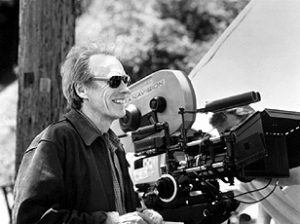 – Sean Penn and Tim Robbins won Oscars for Best Actor and Best Supporting Actor, respectively, in Eastwood’s dark crime tale filled with massive Shakespearean themes, when three childhood friends’ (Penn, Robbins and Kevin Bacon) lives intersect as adults under brutal circumstances. In chilly Boston, a coed is found dead, and the three previously-mentioned men approach the incident from very different perspectives, while the tightly-wound and complicated murder investigation pushes forward. An all-star cast – including, Laurence Fishburne, Marcia Gay Harden and Laura Linney – complete a mesmerizing experience which brings constant thoughts friendships, loyalties and how the sins of the past impact the present. The film’s most memorable line – “The last time I saw Dave” - will haunt you for years.
– Sean Penn and Tim Robbins won Oscars for Best Actor and Best Supporting Actor, respectively, in Eastwood’s dark crime tale filled with massive Shakespearean themes, when three childhood friends’ (Penn, Robbins and Kevin Bacon) lives intersect as adults under brutal circumstances. In chilly Boston, a coed is found dead, and the three previously-mentioned men approach the incident from very different perspectives, while the tightly-wound and complicated murder investigation pushes forward. An all-star cast – including, Laurence Fishburne, Marcia Gay Harden and Laura Linney – complete a mesmerizing experience which brings constant thoughts friendships, loyalties and how the sins of the past impact the present. The film’s most memorable line – “The last time I saw Dave” - will haunt you for years.
- “Million Dollar Baby” (2004) – Maggie Fitzgerald (Hilary Swank) - a seemingly ordinary 31-year-old girl - walks into Frankie Dunn’s (Eastwood) Hit Pit Gym with dreams of becoming a boxer. Dunn initially discounts her wishes, but he eventually trains Maggie, and this rags-to-riches tale appears to follow conventional sports storytelling but with very absorbing father figure/surrogate daughter chemistry. The movie, however, takes one of the biggest left turns in recent cinematic memory which almost knocked this moviegoer unconscious back in 2004. Narrated by Morgan Freeman, the film develops into an absorbing human drama on a completely different level and – in the process - earned four Oscars, including Best Picture, Best Director, Best Actress for Swank, and Best Supporting Actor for Freeman who plays Dunn’s best friend, Eddie Dupris.
- “Unforgiven” (1992) – Clint Eastwood’s last western rightfully lassoed four Oscars, including Best Picture,
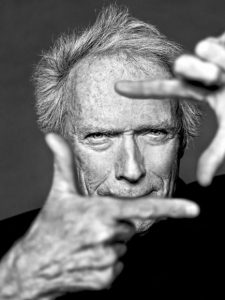 Best Director, Best Supporting Actor for Gene Hackman, and Best Film Editing and proved – along with “Dances with Wolves” (1990) – that the genre can win the Academy’s top prize. Eastwood delivers a prized role as well as William Munny, an aging cowboy who takes one last bounty hunter job after years of living a clean life. Munny frequently speaks of his violent past, but the audience presently sees a cordial and respectful man, so any previous sinister dealings seem either deeply buried or simply exaggerated. In the movie’s final act, however, Sheriff Little Bill Daggett (Hackman) tests Munny’s patience with potentially explosive consequences. Most everything in the town of Big Whiskey, Wyo. (actually filmed in Alberta, Canada) feels bleak and cold, and the tones match Munny’s job of attempting to kill two cowboys for a group of prostitutes. In this world, no one is completely innocent, and Munny mentions to one of his partners in passing, “We all have it coming, Kid.” Not only does Little Bill have it coming, but so does the Kid, the targeted cowboys, Munny’s other partner named Ned (Morgan Freeman), and Munny himself. Munny’s past sins – unfortunately – are just skin-deep, and even though his wife forgave his past misdeeds, to him, they remain unforgiven.
Best Director, Best Supporting Actor for Gene Hackman, and Best Film Editing and proved – along with “Dances with Wolves” (1990) – that the genre can win the Academy’s top prize. Eastwood delivers a prized role as well as William Munny, an aging cowboy who takes one last bounty hunter job after years of living a clean life. Munny frequently speaks of his violent past, but the audience presently sees a cordial and respectful man, so any previous sinister dealings seem either deeply buried or simply exaggerated. In the movie’s final act, however, Sheriff Little Bill Daggett (Hackman) tests Munny’s patience with potentially explosive consequences. Most everything in the town of Big Whiskey, Wyo. (actually filmed in Alberta, Canada) feels bleak and cold, and the tones match Munny’s job of attempting to kill two cowboys for a group of prostitutes. In this world, no one is completely innocent, and Munny mentions to one of his partners in passing, “We all have it coming, Kid.” Not only does Little Bill have it coming, but so does the Kid, the targeted cowboys, Munny’s other partner named Ned (Morgan Freeman), and Munny himself. Munny’s past sins – unfortunately – are just skin-deep, and even though his wife forgave his past misdeeds, to him, they remain unforgiven.
Jeff – a member of the Phoenix Critics Circle – has penned film reviews since 2008 and graduated from ASU’s Walter Cronkite School of Journalism. Follow Jeff and the Phoenix Film Festival on Twitter @MitchFilmCritic and @PhoenixFilmFest, respectively.









